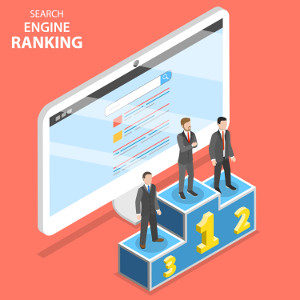Should Businesses Care About Search Engine Rankings?
 Are search rankings important to customers?
Are search rankings important to customers?
Do you know the keywords your customers use to find the types of products or services you sell? Does it matter to your customers if the business is local, or could it be anywhere in the world? Many businesses invest a lot of time, effort, and money in Search Engine Optimization (SEO), to help find their potential customers, and to help customers find them. SEO can help a business improve its rankings in search for relevant products and services. Does ranking well for the keywords your customers use to search for your products and services make a difference?
When a potential customer does begin looking for what you sell, how do they find it? Do they ask their friends? Maybe they go to LinkedIn or Facebook? Perhaps they look at review sites? Your potential customers probably use many of these resources to help them find the products and services they need on their path to making a purchase decision. Both business to business and business to consumer purchasers use search. Often we find search at the beginning, middle, and end of the decision path. This path is most often referred to as the “purchase funnel”.
Most small business marketers measure online sales and lead referrals based on the last item or media clicked before the customer buys or calls. The classic: “How did you hear about us?”, question is a perfect example of this. The problem with using this as a basis for marketing is that the last item clicked is very rarely the source of the customers’ interest in the first place.
Historically marketers have used an acronym, AIDA, to represent the buyer’s journey to purchase. Digital search is the common thread that ties all of these elements together. Here is a short summary definition of each of these terms and some of the potential impact search has in that area:
AIDA Definitions & Impact of Search:
Awareness / Attention – The customer becomes aware that the category of product/services, and the brand exists. Search Impact: People become aware of products, services, and brands while they are searching for ways to meet their wants and needs.
Interest – The customer becomes interested in learning more about the product, service, or brand, and how they might fit with the customers’ needs. Search Impact: Potential customers start researching categories of interest and different brands features, benefits, and pricing.
Desire – The customer develops a favorable feeling towards the product, service, and brand. Search Impact: Potential customer has reached some conclusions about the category and is now looking for supporting information online. This may include testimonials, ratings, and reviews.
Action – The consumer develops a purchase intent, and begins to shop, they may engage in trials or makes purchases. Search Impact: Customer now searches for the specific brand, product, or service they are looking to purchase with the intent to make the transaction.
On this path when a customer reaches the action phase there are five distinct stages potential customers go through initiation, research, comparison, transaction and experience. Search is a critical component of many of these stages, and most crucially, an online search is often the key to open the door at the end of the buyer’s journey to purchase. Search Engine Optimization is the tool businesses can use to craft the key the potential customer is looking for.
People search because they are ready to buy. Think about the last time you were looking to purchase something. You had a need you were looking to fill whether it was business services, a vehicle or equipment, an appliance, or entertainment. You knew the basic information about what you wanted to buy, but you went online looking for more detail. You may have begun searching for reviews of comparables. You may have looked for stores or other businesses near you. It is likely that you know others that were in the market for the same thing. Perhaps you saw a testimonial on LinkedIn or Facebook and this prompted you to research those brands. The common denominator was your final decision to purchase was in some way affected by an online search.
Search can help drive potential customers to your business if you rank well for important, relevant, buyer keywords. Ranking well for generic terms doesn’t help much. It will drive traffic to your site, but it might not drive your business sales. Good SEO will improve your search ranking for these important keywords.
According to a Salesforce report developed by Publicis / Sapient, 87% of purchases begin with an online search. If you want to be found by more of your potential customers, online search is relevant and important to your business.

Really, as I am a junior digital marketer I can see how correct your article is. It’s really impressive that you have shared each and everything about the search engine ranking. I learned some great stuff here that I didn’t know before. Thank you for such a nice and informative article!!
This site was… how do you say it? Relevant!! Finally I have found something which helped me. Thanks!